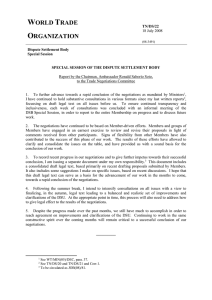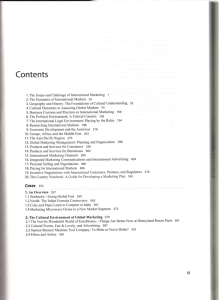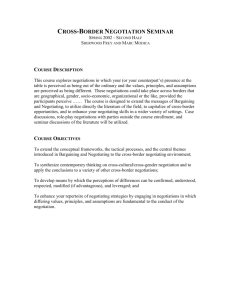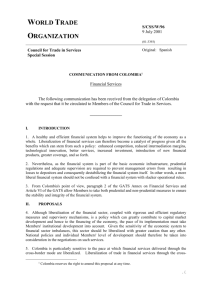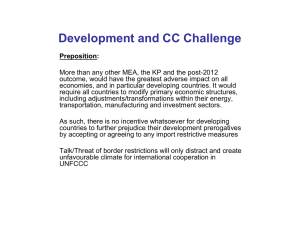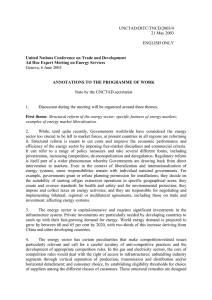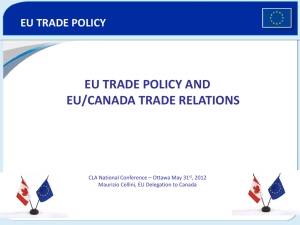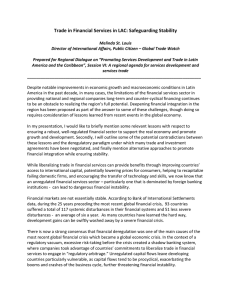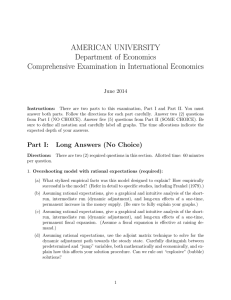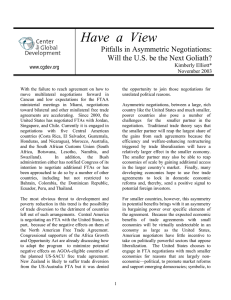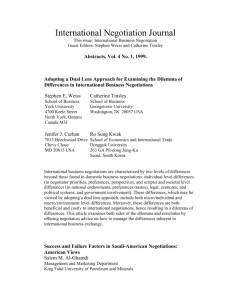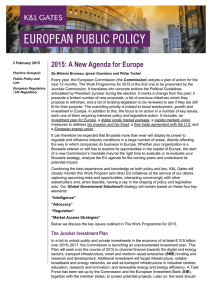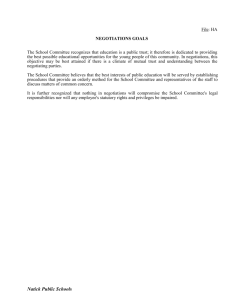Korea
advertisement
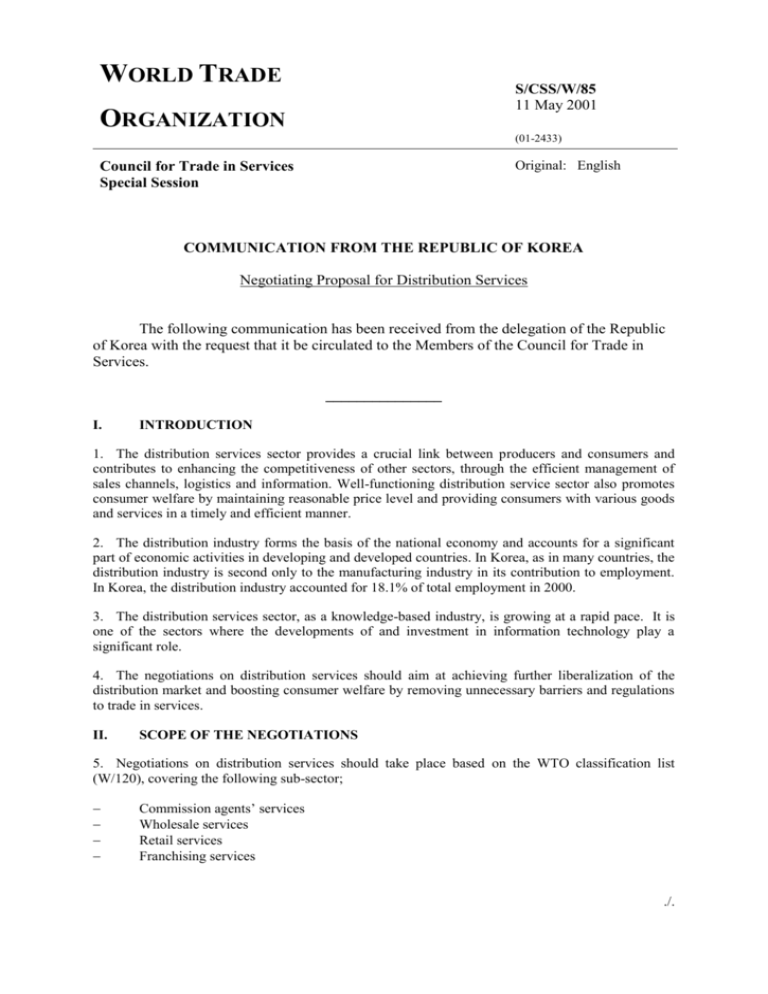
WORLD TRADE S/CSS/W/85 11 May 2001 ORGANIZATION (01-2433) Original: English Council for Trade in Services Special Session COMMUNICATION FROM THE REPUBLIC OF KOREA Negotiating Proposal for Distribution Services The following communication has been received from the delegation of the Republic of Korea with the request that it be circulated to the Members of the Council for Trade in Services. _______________ I. INTRODUCTION 1. The distribution services sector provides a crucial link between producers and consumers and contributes to enhancing the competitiveness of other sectors, through the efficient management of sales channels, logistics and information. Well-functioning distribution service sector also promotes consumer welfare by maintaining reasonable price level and providing consumers with various goods and services in a timely and efficient manner. 2. The distribution industry forms the basis of the national economy and accounts for a significant part of economic activities in developing and developed countries. In Korea, as in many countries, the distribution industry is second only to the manufacturing industry in its contribution to employment. In Korea, the distribution industry accounted for 18.1% of total employment in 2000. 3. The distribution services sector, as a knowledge-based industry, is growing at a rapid pace. It is one of the sectors where the developments of and investment in information technology play a significant role. 4. The negotiations on distribution services should aim at achieving further liberalization of the distribution market and boosting consumer welfare by removing unnecessary barriers and regulations to trade in services. II. SCOPE OF THE NEGOTIATIONS 5. Negotiations on distribution services should take place based on the WTO classification list (W/120), covering the following sub-sector; Commission agents’ services Wholesale services Retail services Franchising services ./. S/CSS/W/85 Page 2 6. A number of products are excluded from the current schedules of some Members. Negotiations should also address the scope of products exclusions with a view to achieving further liberalization. III. EXPECTATIONS FROM THE NEGOTIATIONS 7. Despite the significance of the distribution services sector in their national economies, few members have made specific commitments in the distribution services sector. Negotiations should aim at a substantial liberalization of distribution services sector by removing restrictions on market access and national treatment and by promoting transparency in domestic regulations. 8. Also, when a country has already taken autonomous liberalization measures in its distribution services sector beyond its schedule of specific commitments, credit should be granted. 9. Since the cross-border supply of services (Mode 1) is directly connected with e-commerce issues, the discussion on cross-border supply of services should proceed alongside the discussion on ecommerce in the General Council. 10. The following measures, which work as barriers to trade in distribution services, should be effectively addressed in the negotiations: Restrictions on market access and national treatment; Requirements for minimum amount of annual sales and capital, Restrictions on foreign equity participation, Restrictions on the geographical areas for and size and number of stores, Limitations on the volume and variety of sales items. Domestic regulations; Lack of transparency in licensing procedures and administrative regulations, Onerous and unnecessary procedures and documentation requirements. ____________

